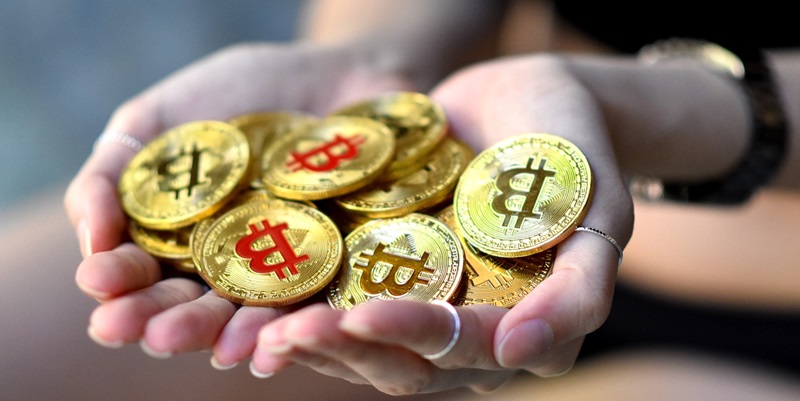Deutsche Telekom and Bankhaus Metzler have embarked on a bold pilot project to convert surplus renewable energy into Bitcoin mining, a venture aimed at enhancing energy grid stability and driving financial innovation. In an era where the balance between energy production and consumption becomes increasingly critical, this initiative offers a pioneering solution. Hosted at Riva GmbH Engineering in Backnang, the project leverages the company’s photovoltaic system, thus establishing a direct link between renewable energy production and digital asset creation. The essence of this project is to convert surplus electricity from renewable sources, which would otherwise be wasted, into valuable digital assets like Bitcoin.
This collaboration involves multiple key players, each bringing their expertise to the table. Metis Solutions GmbH manages the mining infrastructure, while Deutsche Telekom MMS contributes its proficiency in web3 technology to oversee the operational details. On the financial front, Bankhaus Metzler, a venerable financial institution in Germany, leads the fiscal strategy. The initiative does more than just address the problem of excess electricity production; it also explores new opportunities within the blockchain sector. Oliver Nyderle from Deutsche Telekom MMS aptly describes this process as "digital monetary photosynthesis," transforming surplus renewable energy into digital value through Bitcoin mining.
Addressing Grid Stability through Digital Currency
At the heart of this groundbreaking initiative lies the pressing issue of grid stability. Renewable energy production, by its nature, can be erratic, often resulting in periods where the electricity generated exceeds immediate demand. Such fluctuations pose a risk of grid overload, a challenge that the pilot project aims to mitigate. The ingenious solution of converting surplus energy into Bitcoin achieves two essential objectives – it stabilizes the grid and generates digital assets. This dual benefit resonates with the increasing need for efficient and innovative energy management solutions.
Hendrik König from Bankhaus Metzler emphasizes the potential advantages for Germany’s energy and financial sectors. By accumulating and analyzing data from this project, the initiative seeks to support wind power producers and photovoltaic plant operators who grapple with unpredictable energy availability. This approach not only provides a valuable use case for surplus energy but also ensures that the grid remains stable during periods of energy fluctuation. Additionally, by converting surplus energy into Bitcoin, the project presents a consistent value proposition, addressing one of the core issues faced by renewable energy producers.
Financial Innovation through Blockchain Integration
Another compelling aspect of this initiative is its exploration into financial innovation through blockchain technology. Traditionally confined to the realms of digital currencies and decentralized finance, blockchain’s intersection with energy management represents a significant leap forward. By integrating blockchain technology with surplus energy conversion, the project ventures into uncharted territory. It aims to redefine how surplus energy can be used, offering a new perspective on financial services.
The collaboration between Deutsche Telekom, Bankhaus Metzler, and Riva GmbH Engineering signifies a pioneering step toward leveraging renewable energy for blockchain-driven financial innovation. This initiative underscores a proactive approach to contemporary challenges in energy management and highlights the evolving role of blockchain technology in financial frameworks. As the project progresses, its findings could pave the way for broader applications, enhancing both energy efficiency and financial stability in Germany.
A Vision for the Future
Deutsche Telekom and Bankhaus Metzler have launched an innovative pilot project to transform surplus renewable energy into Bitcoin mining. This initiative aims to stabilize the energy grid and foster financial innovation. As energy production and consumption require careful balancing, this project proposes a groundbreaking solution. Riva GmbH Engineering in Backnang hosts this venture, utilizing its photovoltaic system to directly connect renewable energy production with digital asset creation. The core idea is to convert otherwise wasted excess renewable electricity into valuable digital assets like Bitcoin.
This collaboration involves several key players, each contributing their unique expertise. Metis Solutions GmbH oversees the mining infrastructure, while Deutsche Telekom MMS applies its web3 technology skills to manage operational details. Bankhaus Metzler, a respected German financial institution, drives the fiscal strategy. Beyond addressing the issue of excess electricity, the initiative explores new possibilities in the blockchain sector. Oliver Nyderle from Deutsche Telekom MMS aptly describes the process as "digital monetary photosynthesis," converting surplus renewable energy into digital value through Bitcoin mining.

